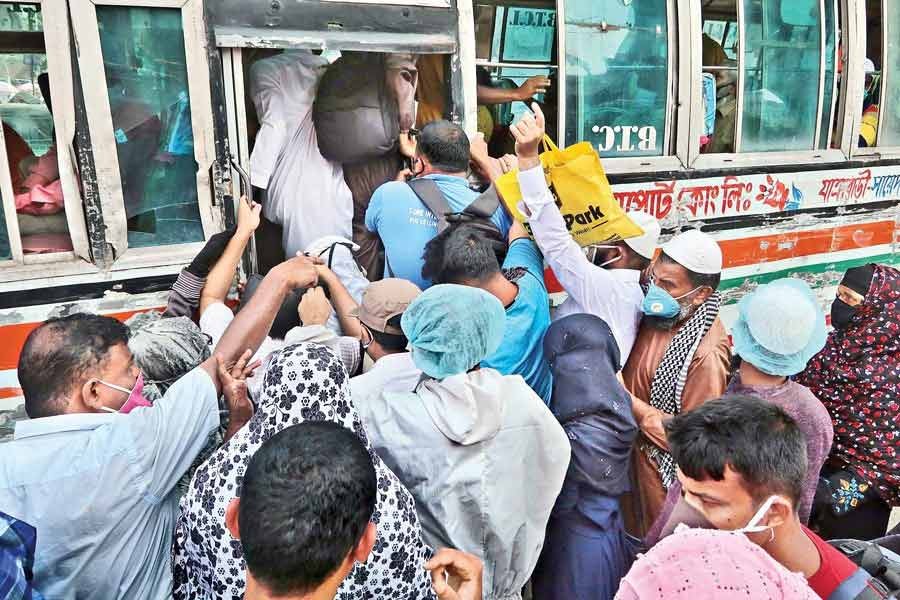The constitution of Bangladesh promotes non-discrimination and makes the state responsible for ensuring equal opportunities for every citizen. Unfortunately, even after almost half a century of the independence, we are lagging behind in this regard. Outbreak of Covid-19 has already exposed the vulnerabilities of development and discriminatory economic growth. And now, in the name of fighting against the global pandemic, we are propping the discrimination up further.
Careful review of the sequences of events that have been taking place in the country since March 2020 will help understand the discriminatory attitude, the widening gap between the 'haves and have-nots'. Whatever plan is being devised, the haves are at the centre of it while have-nots get marginalised.
In late March when the first round of general holidays was declared, these `have-nots' suffered a lot. There was no plan for an alternative to their livelihoods. Suddenly these people found that they had no sources of their tiny incomes. Even their so-called dwellings are not hygienic, let alone enough to maintain the social distance. Hence, they ran away towards their roots where at least they have a shelter, they have their families and relatives.
Such exodus, however, made many of us anxious. We started to criticise them without paying attention to the root causes. Accusing the ordinary people becomes a growing phenomenon and policymakers generally make them the prime accused. In fact, it is easy to blame the have-nots.
Within a few days we witnessed a reverse wave of have-nots towards the capital as the ready-made garment (RMG) factory owners decided to run the commercial operations. Confusions and the fear of job loss drove the RMG workers to walk mile after mile to come back. When most of the poor workers returned to Dhaka and Gazipur, the leaders of the factory owners' association announced extension of holidays. They totally ignored the plight of the labourers who had reached their destinations having no food and refused by the landlords to stay at their rented homes.
Again, those who were leaving the capital city prior to the Eid. faced obstacles. The sudden bar imposed by the authorities stopped many ordinary people in the ferry terminals and they were compelled to stay there throughout the whole night. On the following day, Eid journey was permitted through private vehicles. Thus the 'have-nots' again got marginalised.
The daily statistics of the Covid on the number of total tested and infected also raise a question. Who are the service recipients of these testing centres? The have-nots like the RMG workers and the floating city dwellers are not being tested. We are sharing data leaving a major portion of the population behind!
Due to lack of clear direction and withdrawal of public holidays to save the livelihoods, people are now assuming that the country is preferring to get herd immunity to beat the virus. Seeing all the measures taken in last three months, some are also thinking that poor people are being discriminately targeted for herd immunity.
Until the beginning of 2020, we were used to listening to rhetoric stories about the development. Unfortunately, the coronavirus unveiled the bitter reality. Like exposing the worn-out health system, it has also revealed the truth of discrimination. A large portion of the population is yet to get adequate attention of the policymakers. They are neither included in the policies and plans nor in the services. They have also been kept off exercising their minimum right as a citizen.
Like all the other member states of the United Nations (UN), Bangladesh is also committed to 'leaving no one behind' to ensure the implementation of Sustainable Development Goals (SDGs). Covid-19 makes the thing almost impossible as the number of 'have-nots' is rising fast.
Shegufta Sharmin is a development activist.


